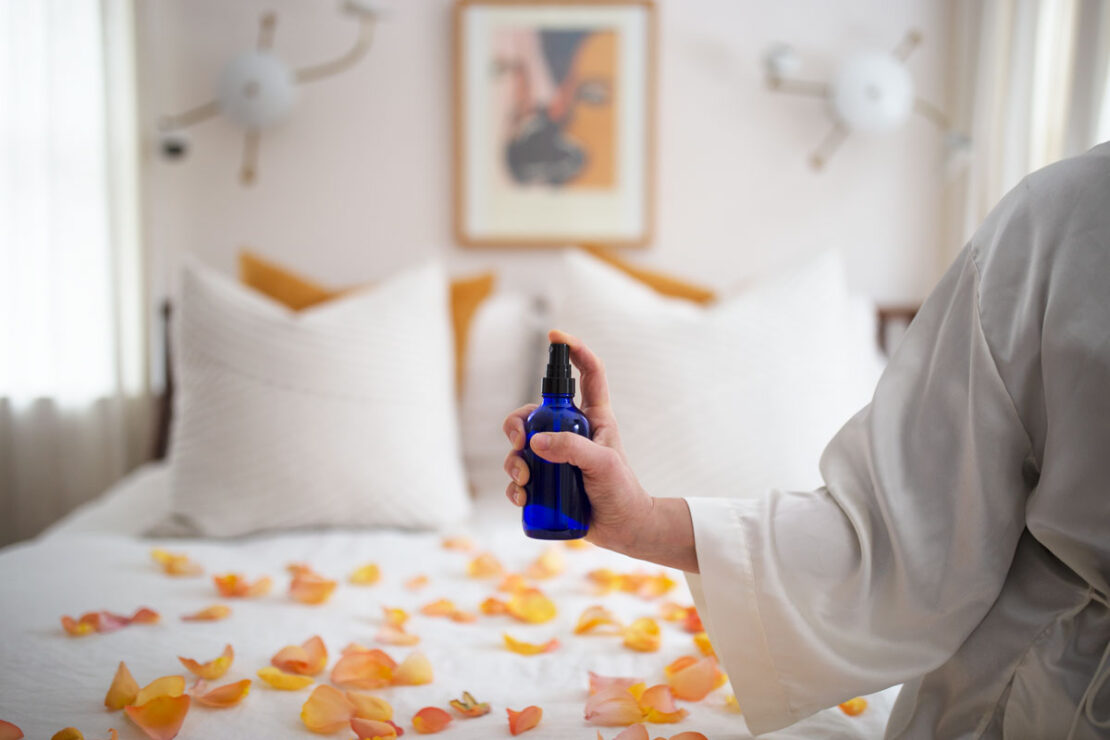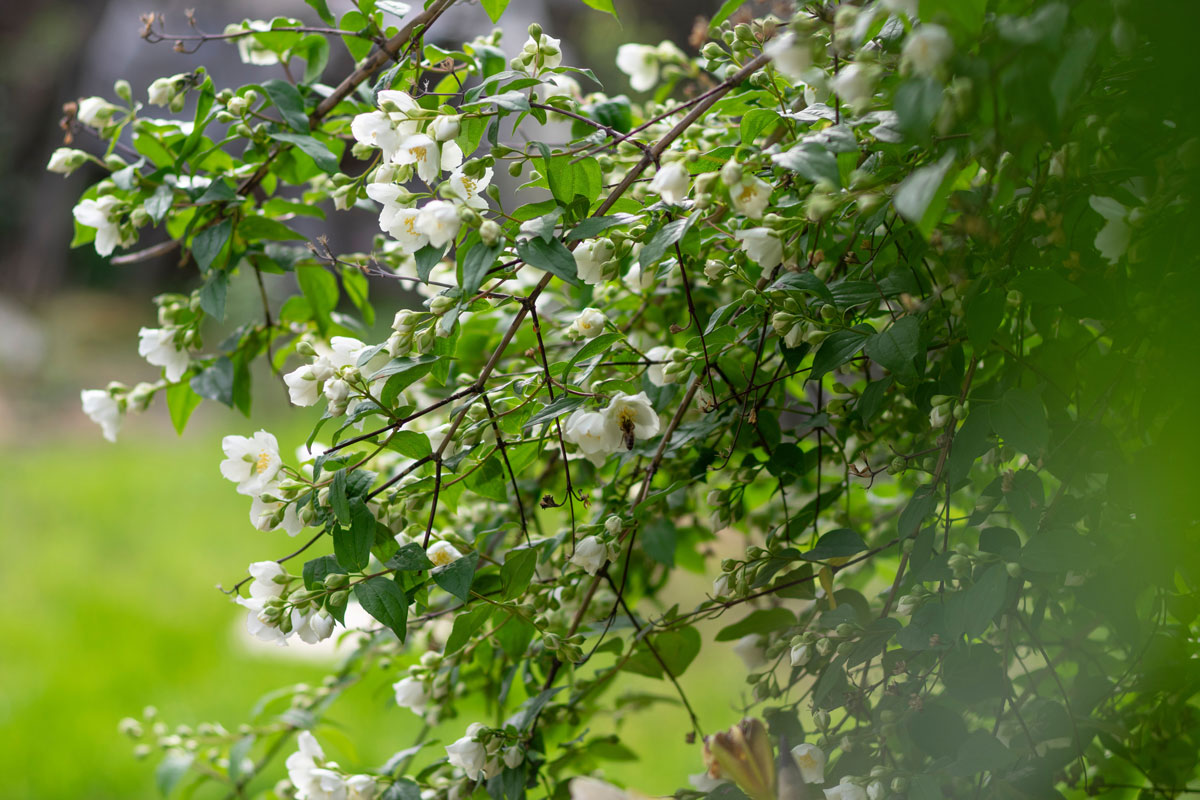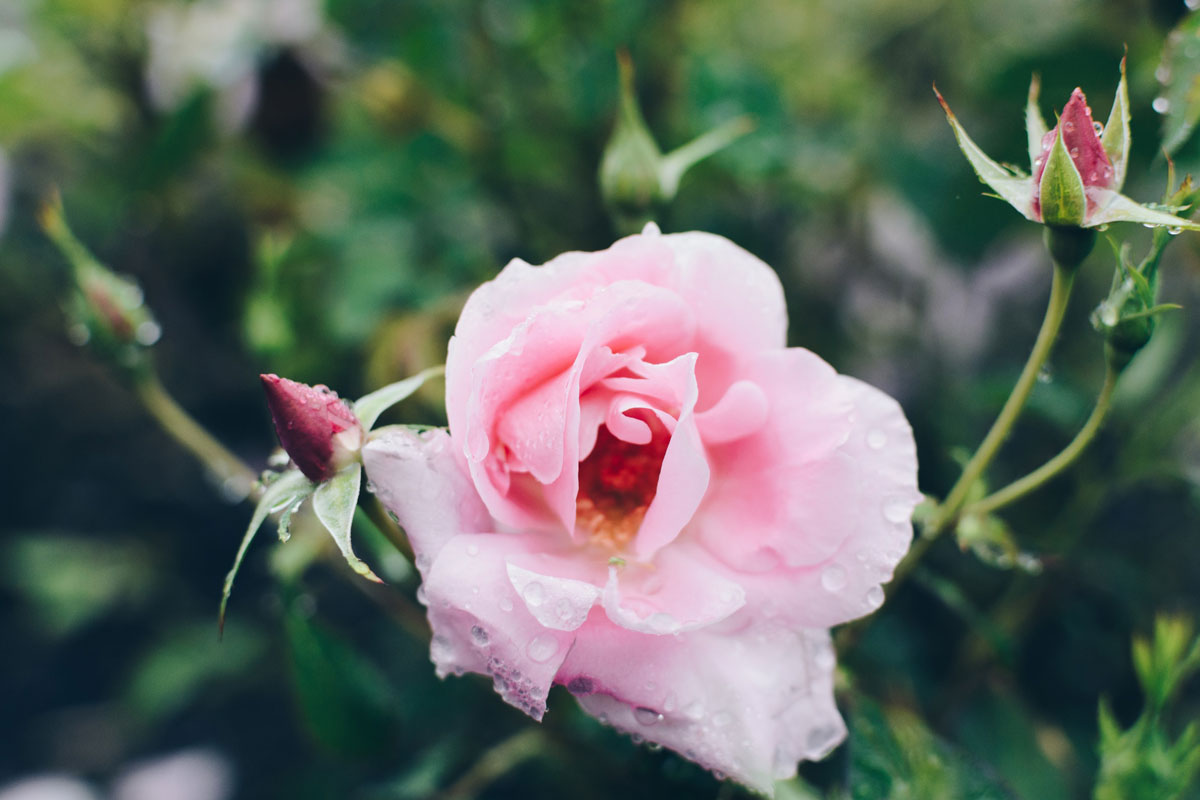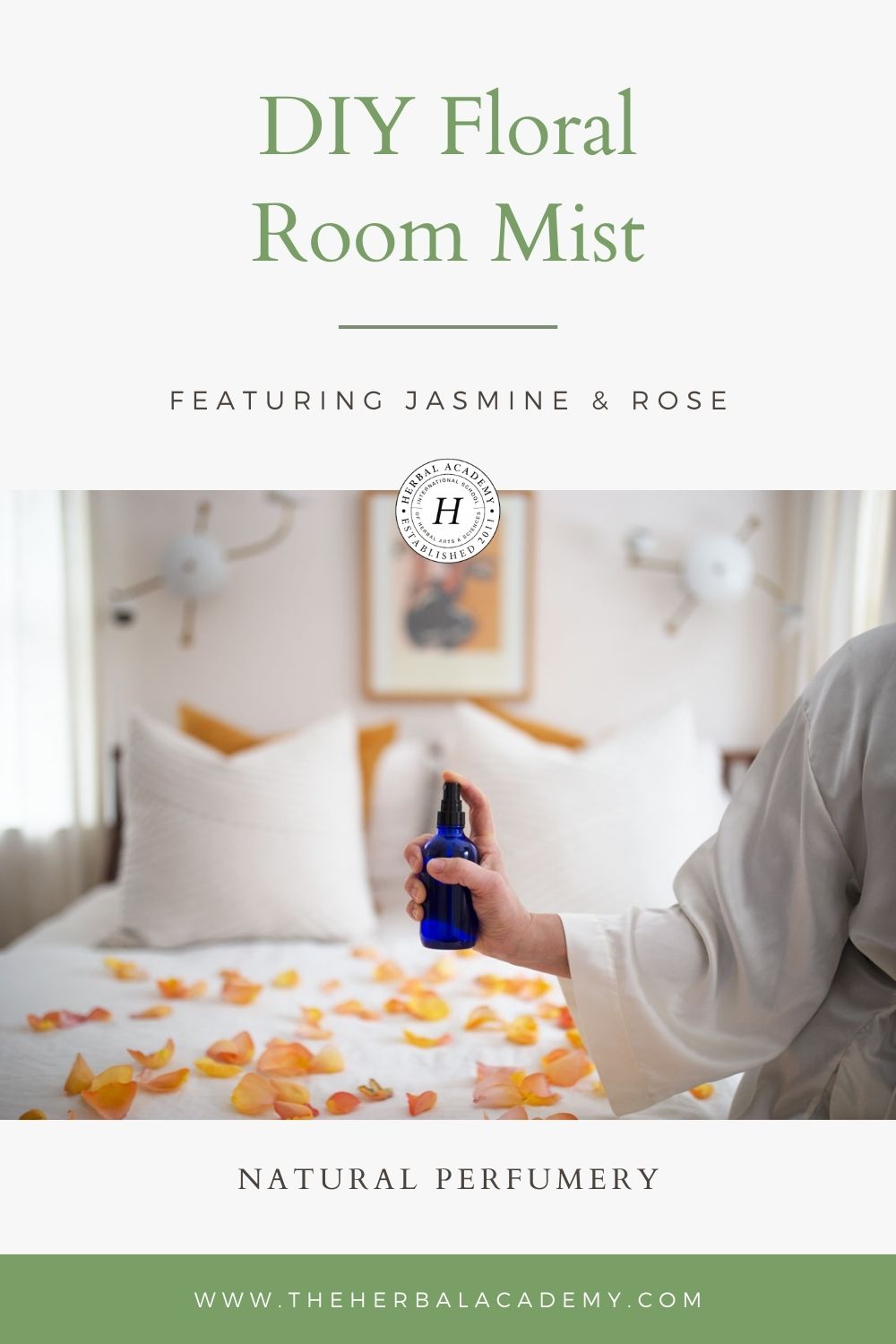
Floral Mist: DIY Room Spray
A few spritzes of our DIY Room Spray will transport your mind and spirit to bright and colorful gardens bursting with flowers and light. This floral mist is a sneak peek into our Natural Perfumery Course, and it combines the fragrant aroma of jasmine and rose with the citrusy cheerfulness of bergamot. The end result is an uplifting scent that rejuvenates the senses and refreshes your home.
Most conventional room sprays contain toxins and chemical fragrances that we’d prefer to avoid. Thankfully, creating an aromatic mist at home is quick and easy. Plus, it smells much better than most store-bought options (if we do say so ourselves!). Besides the fact that this homemade version smells amazing, it’s nice to have the peace of mind knowing the ingredients are natural and non-toxic, providing a healthy alternative to chemical-laden air fresheners.

Meet the Ingredients: Jasmine, Rose, and Bergamot
This DIY room spray features jasmine (Jasminum grandiflorum or J. sambac) and rose (Rosa spp.) and can also be used as a floral body mist, if desired. The aromatic pairing of these botanicals evokes a sensual, sweet fragrance that is uplifting and comforting.
Jasmine (Jasminum grandiflorum or J. sambac) is a foundational scent in perfumery, adding fullness and vitality to fragrance blends. It is also well-loved for its ability to encourage relaxation and boost mood. Besides perfume and room sprays, you’ll find jasmine in massage oils, diffuser blends, and body polish recipes.
Rose (Rosa spp.) is included for its sweet floral fragrance but is also useful for grief support and inspiring romance. The gentle, soothing nature of rose provides a sense of calm and peacefulness.

Bergamot (Citrus x bergamia) rounds out the scent profile with a bright, crisp aroma that pairs well with floral notes. It is often used in perfumery to bring harmony to aromatic blends (Navarra et al., 2015). You’ll also find this citrus essential oil employed in herbal preparations, such as this personal inhaler blend, to support anxiety and stress.
Since Bergamot is phototoxic it’s a good idea to use furocoumarin-free or bergaptene-free essential oil when using this recipe as a body spray. If these options are not available (and expressed essential oil is used), keep exposed skin out of sunlight for 18 hours to avoid the risk of serious sunburn.
Bergamot essential oil is a welcome addition to body mists, mood sprays, and natural cosmetics as it pairs well with many other scents. You’ll find bergamot featured in our Mediterranean Garden Lotion Bars and recommended in our solid perfume tutorial.
Floral Mist
This is a lovely, floral body or room spray. If essential oils separate out, you may need to tweak the amount of solubilizer for your blend, depending on the type you use. Be sure to use furanocoumarin-free (FCF) or bergapten-free bergamot; if using expressed bergamot, keep exposed skin out of the sun or ultraviolet (UV) radiation for at least 18 hours after applying to prevent possible serious burns. To make this recipe you’ll need a 100-mL, dark-colored glass bottle with a sprayer top.
27 mL 190-proof alcohol
1 mL solubilizer
10 drops FCF bergamot (Citrus x bergamia) essential oil
3 drops jasmine (Jasminum grandiflorum or J. sambac) absolute
2 drops rose otto (Rosa x damascena) essential oil
36 mL jasmine (Jasminum grandiflorum or J. sambac) hydrosol
35 mL rose (Rosa spp.) hydrosol
-
- Combine alcohol, solubilizer, and essential oils in a sterilized, 100-mL, dark-colored glass spray bottle.
- Shake gently to combine.
- Add hydrosols. Shake gently again.
- Label and keep in a cool, dark place for up to 6 months.
- Shake before using.
In Closing,
This DIY room spray is a wonderful natural alternative to conventional air fresheners. Besides freshening the air in your home, the aromatic ingredients may also enhance mood and support wellness.
If you’d like to learn more about creating aromatic blends and perfumes, we invite you to take part in our new Natural Perfumery Course!
The Natural Perfumery Course includes all the information you need to start blending your own botanical perfumes at home today, including over 20 recipes, a special collection of perfumery plant monographs, simple rituals for incorporating them into your lifestyle, expert guidance, and beautifully illustrated downloads for safety, sustainability, blending techniques, and more.
Learn more or enroll in the Natural Perfumery Course.

REFERENCES
Navarra, M., Mannucci, C., Delbò, M., & Calapai, G. (2015). Citrus bergamia essential oil: from basic research to clinical application. Frontiers in Pharmacology, 6, 36. https://doi.org/10.3389/fphar.2015.00036







